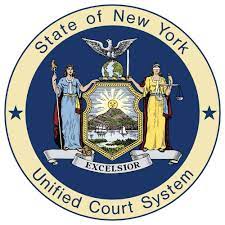The Extraterritorial Application of State Wage and Hour Laws
Many U.S. states have enacted wage and hour laws. These laws generally set a minimum wage and require employers to pay overtime. When a company headquartered in one state hires an employee to perform work in a foreign country, however, it is not always clear which jurisdiction’s laws will apply. Is the payment of wages…
Continue ReadingColorado Court Holds That Forum Non Conveniens Dismissal Is Not Preclusive
When a court in the United States grants a motion to dismiss for forum non conveniens, finding that a plaintiff’s claims should be litigated abroad, may the plaintiff instead choose to refile its claims in another U.S. jurisdiction? The answer will often be yes because the forum non conveniens dismissal does not have issue preclusive…
Continue ReadingWhen Should Federal Common Law Govern Transnational Litigation?
The conventional wisdom is that transnational litigation “can trigger foreign relations concerns.” Because the federal government has primary responsibility for the United States’ relations with other nations, the question naturally arises whether federal law should govern such litigation even when neither a federal statute, nor the U.S. Constitution, nor a treaty is applicable. Currently, as…
Continue ReadingA Primer on State Law in Transnational Litigation
The procedural and substantive rules that U.S. courts apply in transnational litigation come from many sources, including the U.S. Constitution, international treaties, customary international law, federal statutes, federal rules, and federal common law (both preemptive and non-preemptive)—but also, state statutes, state rules, and state common law. This primer focuses on the underappreciated role of state…
Continue ReadingSubstituted Service and the Hague Service Convention
Can state law be used to avoid a federal treaty, even though the Supremacy Clause of the U.S. Constitution makes treaties supreme over state law? The somewhat surprising answer is yes—at least when it comes to the Hague Service Convention and state rules on substituted service. The Hague Service Convention governs transnational service of process…
Continue ReadingState Doctrines of Forum Non Conveniens: Beyond Gulf Oil
State courts have their own doctrines for addressing transnational litigation, including their own doctrines of forum non conveniens (FNC). While a majority of states today apply a version of FNC like that of the federal courts, we found that 17 states—fully one third—depart from the Gulf Oil framework in one or more ways.
Continue ReadingWhat Should Happen Next in Cassirer?
Most of the procedural questions that arise in domestic litigation have a counterpart in transnational litigation. In Cassirer v. Thyssen-Bornemisza Collection Foundation, the Supreme Court confronted the transnational counterpart to Klaxon v. Stentor Electric Manufacturing Co., a much-debated choice-of-law case decided in 1941. As Justice Kagan noted in her opinion for a unanimous Court, “[a]lthough…
Continue ReadingCassirer and FSIA Choice of Law
Today the Supreme Court unanimously resolved an important case about choice of law under the Foreign Sovereign Immunities Act (FSIA). Cassirer v. Thyssen-Bornemisza Collection Foundation is a lawsuit about the ownership of a Camille Pissarro painting, surrendered by Lilly Cassirer to the Nazis and now held by a foundation created and controlled by the Government…
Continue ReadingSupreme Court decides Cassirer v. Thyssen-Bornemisza Collection Foundation
The Supreme Court today unanimously held in Cassirer v. Thyssen-Bornemisza Collection Foundation that state choice-of-law rules apply in cases brought against foreign sovereigns alleging non-federal claims.
Continue ReadingWhere is the U.S. International Commercial Court?
Many countries have been setting up domestic courts devoted to international commercial disputes. Why hasn’t the United States? Perhaps because New York courts are already doing that work.
Continue Reading- « Previous
- 1
- 2
- 3
- 4
- Next »



